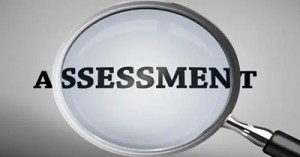Spatial skills refer to the ability to see a two or three-dimensional objects or think in a way that relates to space and the position, area and size within it.
For example, A child imagines where a toy is inside his bedroom before walking into the room to get it, when we assemble furniture, we need to match the two-dimensional diagrams to the three-dimensional furniture parts.
Research shows that spatial thinking is an important predictor of achievement in the STEM science, technology, engineering, and mathematics. In addition, recent research indicates that early attention to developing children’s spatial thinking increases achievement in math and science and can promote skill and interest in future careers in STEM disciplines.
Spatial thinking is crucial for the following:
- A Geoscientist mentally manipulates the movement of tectonic planes to see the process of the earth formation.
- A neurosurgeon visualizes different brain areas to predict the outcome of a surgery.
- An engineer imagines how various forces may affect the design of a structure.
There are numerous research studies that demonstrate the relationship between spatial reasoning and what we typically think of as mathematical ability. For example, one research study found that the quality of block play at four years of age was a predictor of high school mathematics achievement (Wolfgang et al., 2001). Another study found a relationship between young children’s construction skills (such as playing with jigsaw puzzles and blocks) and a strong number sense and success in solving mathematical word problems (Nath & Szücs, 2014)
Children can improve spatial skills with practice by:
- playing With Blocks
- using spatial language (names of shapes, spatial properties - round, sharp, curved, pointy, dimensions - narrow,
- wide, short etc).
- completing jigsaws
- creating maps
- encourage children to gesture
- ball skills
Educators and Parents alike, encouraging children to develop and practice spatial skills enables them success in the future.
References:
"Spatial Reasoning Skills - STEM", Parenting For Brain
"Spatial Ability", Wikipedia
"Five Easy Ways To Boost Children’s Spatial Skills", The Converseation, 13 August 2018







 A leading not-for-profit childcare provider has raised concerns about proposed safety regulations in the early childhood sector, cautioning that while well-intentioned, the new rules could
A leading not-for-profit childcare provider has raised concerns about proposed safety regulations in the early childhood sector, cautioning that while well-intentioned, the new rules could In the heart of every early childhood service is a director, someone who balances compliance with compassion, strategy with soul, and leadership with deep relational
In the heart of every early childhood service is a director, someone who balances compliance with compassion, strategy with soul, and leadership with deep relational WARNING—DISTRESSING CONTENT: A chilling investigation by ABC’s Four Corners has uncovered how paedophiles are using the dark web to share detailed strategies for infiltrating childcare
WARNING—DISTRESSING CONTENT: A chilling investigation by ABC’s Four Corners has uncovered how paedophiles are using the dark web to share detailed strategies for infiltrating childcare A childcare provider operating out of Floreat Park Primary School has been fined $28,000 following a serious lapse in supervision during a zoo excursion that
A childcare provider operating out of Floreat Park Primary School has been fined $28,000 following a serious lapse in supervision during a zoo excursion that In recent years, the early childhood education and care sector has faced a troubling rise in fraudulent qualifications, a threat not only to professional integrity
In recent years, the early childhood education and care sector has faced a troubling rise in fraudulent qualifications, a threat not only to professional integrity